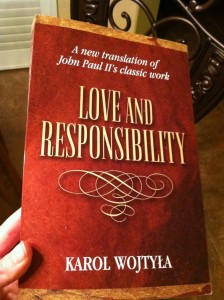The Q: “How does a guy be persistent without being annoying? Possible?”
The A: Short version: Totally.
Long version: Persistence is pursuit despite difficulty. Dedication in the face of opposition. Most relationships require some of it. Some relationships require more of it than others. In dating, persistence isn’t necessarily bad if what’s “opposed” to your pursuit is, say, time or money or distance. It is bad, however, if what’s opposed to it is the person you’re trying to date.
Ultimately, only she – the woman with whom you’re persistent – can discern the difference between persistent and annoying. This is because for most of us, you’re “persistent” if we like you and “annoying” if we don’t. But for some women, “persistent” and “annoying” are synonymous.
There is only one way to find out.
In the process, we learn a lot about each other. What we do and don’t want in spouses. We discern what all of us must:
Whether getting together makes sense. Whether we’ll make good spouses and parents. Whether the world needs a kid who could turn into one of us. Whether the pursuit, establishment, and maintenance of this contributes to the greater glory of God.
And regarding a guy who pursues a woman despite difficulty, she must discern whether his pursuit is persistent or annoying.
If you like her…
let her.
#WorthIt. 🙂
– – – –
This post is part of an occasional series called Q&A. Click here to read all the posts from it.


